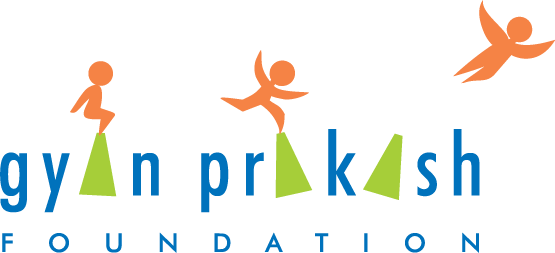Our Work
Addressing Educational Inequality
We believe that improving rural primary education in India requires more than isolated interventions. It calls for a systemic shift—one that builds local capacity, enables peer-led collaboration, and advances the education system toward equity and long-term sustainability.
Our approach rests on three interconnected pillars:
- Cluster-Level Peer-Led Teacher Collectives
- Decentralization of Education Governance
- Parents as Early Teachers
Together, they anchor our efforts to create lasting, scalable change from the ground up.

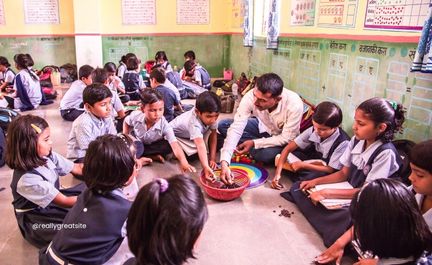
Strengthening Cluster Level Teacher Collectives
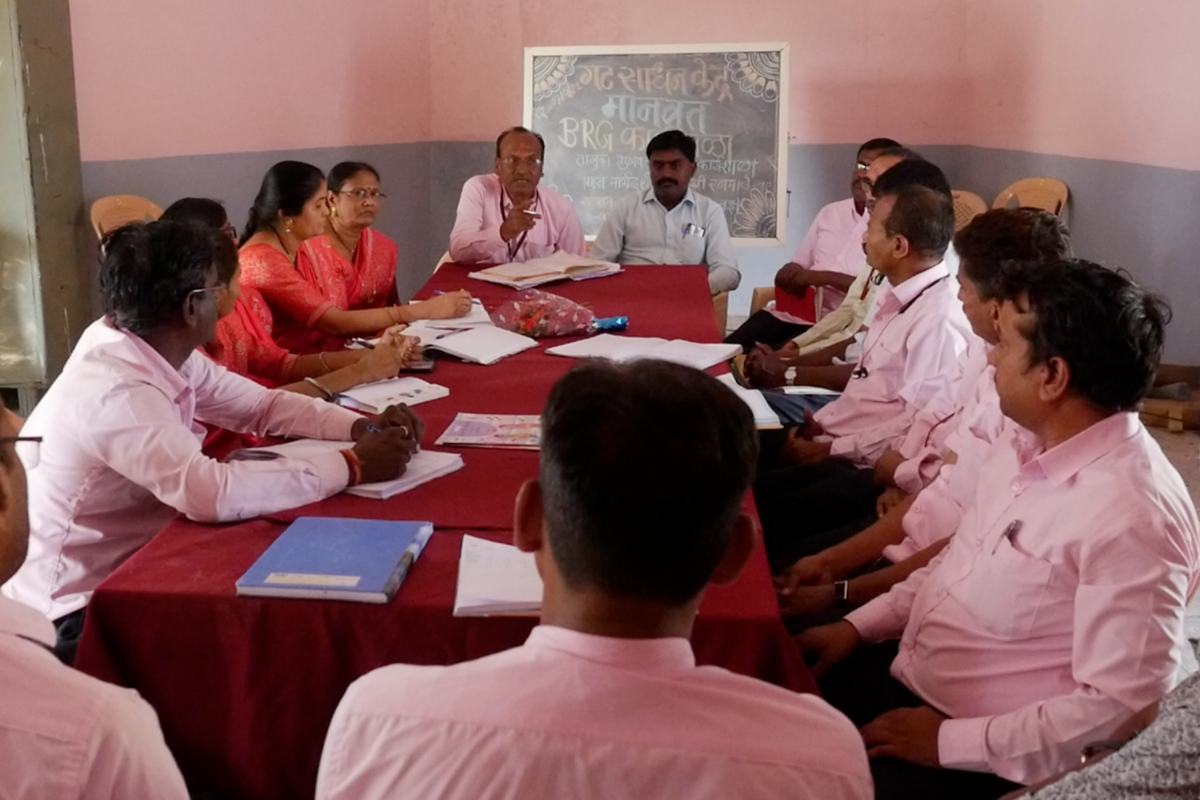
Creating communities of practice that drive professional growth and classroom transformation.
We work across 1648 school clusters in 6 states, supporting peer-led teacher collectives as the foundation for ongoing professional development. These collectives create space for teachers to reflect on practice, co-create solutions, and adopt competency-based, child-centered approaches.
These collectives empower teachers to:
-
Reflect on real classroom experiences
-
Share and refine practices to improve student learning
-
Collaborate with peers
-
Apply formative assessment strategies
While we directly support clusters across multiple geographies, the model has also encouraged adoption in shadow clusters—those indirectly influenced through state-led replication and teacher-to-teacher knowledge sharing.
Cumulative Reach & Impact:
43,860 teachers engaged across 6 states over the past 8 years, through both direct implementation and wider diffusion via state systems.
These teacher collectives are not just forums—they are communities of transformation.
Facilitating Systemic Change through Decentralised Governance
We partner with SCERTs, DIETs, and School Management Committees (SMCs) to embed local planning, data-driven decision-making, and community engagement into the fabric of the public education system.
Key focus areas include:
- Development of Clusters of Excellence as real-world models of system alignment
- Capacity building for DIETs and academic leadership at the District level
- Strengthening SMCs and Gram Panchayat participation to ensure community ownership
- Contributing to policy at the state level through field-based insights
We view clusters not as administrative units, but as microcosms of system-wide change—where local leadership, innovation, and collaboration converge to drive meaningful reform.
Parents as Early Teachers
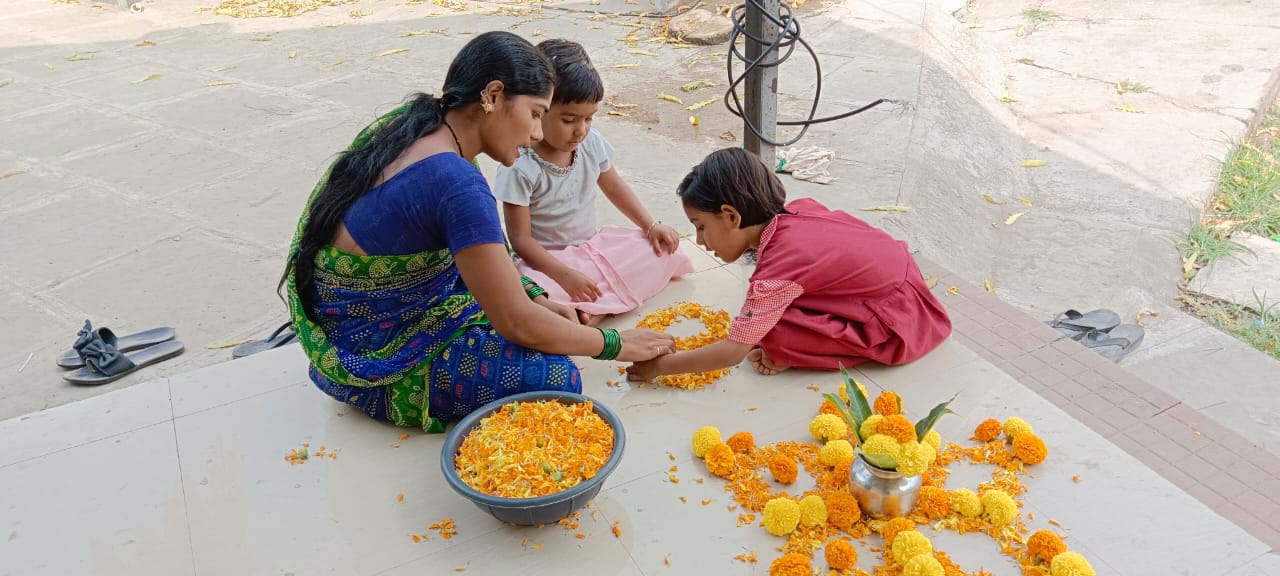
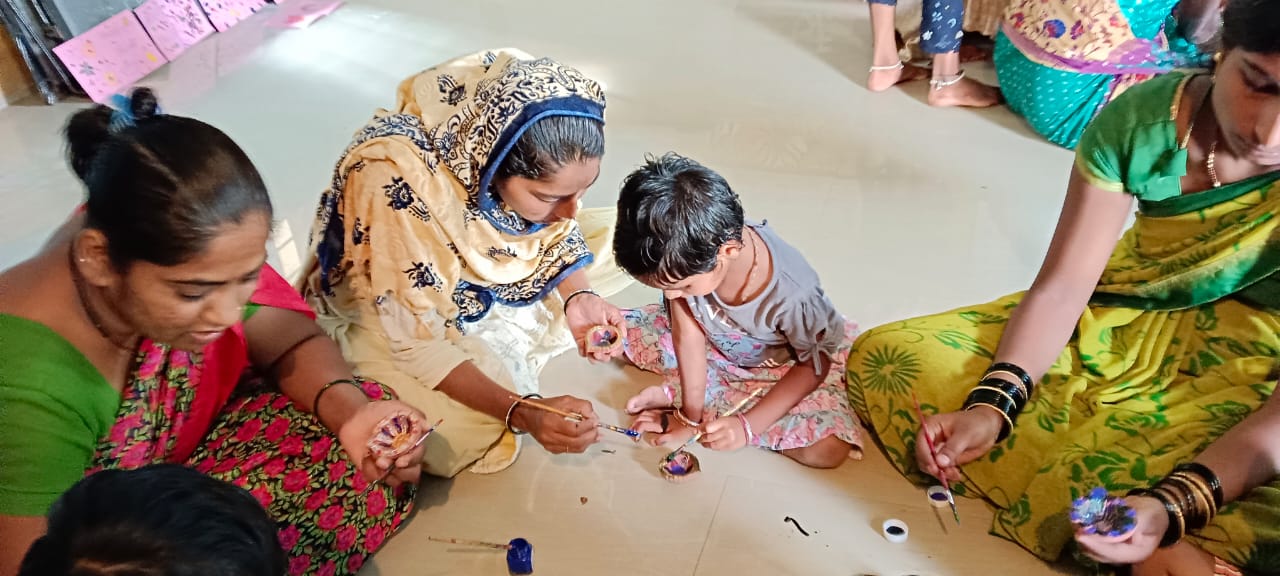
Empowering families during the early years to lay strong foundations for lifelong learning.
GPF’s Parents as Early Teachers program focuses on the early years of a child’s life and is designed for families of children attending rural Anganwadis.
The program aims to:
-
Shape parental mindsets around their vital role in early learning and development
-
Support preschool children’s readiness for formal schooling
-
Strengthen the relationship between families and Anganwadi workers to create a shared ecosystem of care and learning
By equipping parents with the knowledge and confidence to nurture learning from the start, we ensure children enter school more prepared—emotionally, socially, and cognitively. This work strengthens the bridge between home and school, and sets the stage for a lifelong learning journey.
When parents understand their role in learning, the home becomes a child’s first classroom.
Technology as an Enabler of Change
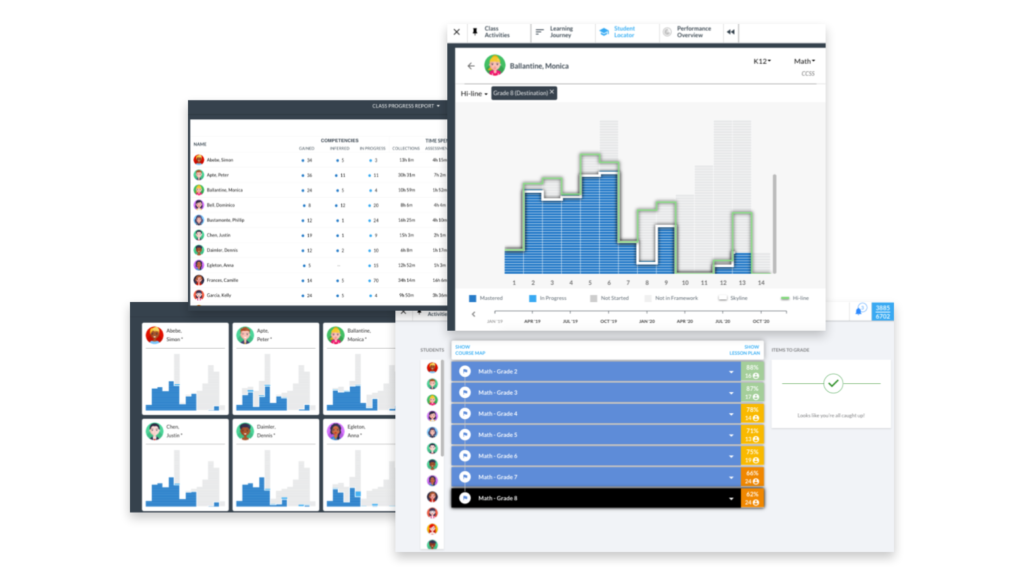
Strengthening teacher development and system processes through meaningful digital integration.
Technology in our work is designed to enhance—not replace—human relationships and professional learning. As part of the shift from rote-based teaching to competency-based education (CBE), it plays a vital role in deepening teacher collaboration, enabling ongoing development, and supporting data-informed decision-making.
Embedded within school clusters and other pillars of the ecosystem, technology helps to:
- Facilitate collaborative planning, review, and peer learning among teachers and cluster teams.
- Provide accessible, self-paced professional development aligned with real classroom needs.
- Equip Cluster Resource Persons (CRPs) and cluster mentors to offer timely, context-specific guidance.
- Track student progress through evidence of mastery, enabling more responsive instruction.
Looking ahead, technology will continue to be a key enabler—scaffolding capacity, strengthening feedback loops, and helping scale what works in ways that are more responsive, inclusive, and sustainable across the rural primary education system.
Our Journey Through the Years
A journey of learning, collaboration, and transformation—shaped by the building blocks of change.
2012-14
Discovery Phase
Set up Learning Labs within rural schools working directly with students on school readiness capabilities.

2015-2018
Development Phase
Innovation
Introduced data-driven lesson planning to align teacher practices and student needs
Stakeholder ownership
- Activated a platform within the system for collaborative learning amongst teachers.
- Strengthened community ownership by engaging parents in their child’s learning progress

2019-2022
Consolidation Phase -1
Leveraging technology to bring real time data on student learning to all stakeholders.
- Institutionalizing Stakeholder Ownership.
- Building a Navigated Learning Collaborative
Expansion into four additional states, reaching over 500 schools.

2023-2025
Consolidation Phase 2
Scaling sustainably
- Expanded footprints within the 6 states.
- Strenthened Cluster level approach to transform best practices at the grass roots.
- Consolidated at District level for moving the needle towards Systemic change.

Join us in this transformational journey
Your support can make a significant difference in the lives of children in rural areas. Whether you choose to donate, volunteer, or partner with us, you’ll help create lasting, quality learning opportunities. Join us in building a future where every child in rural India can learn, grow, and thrive.
